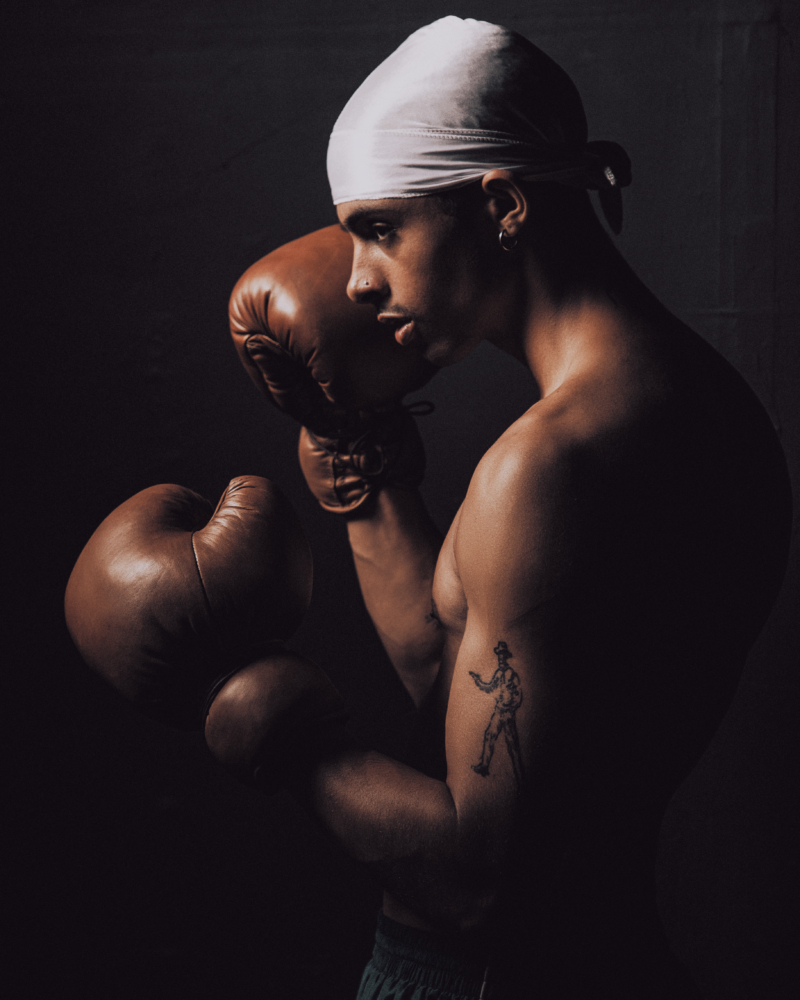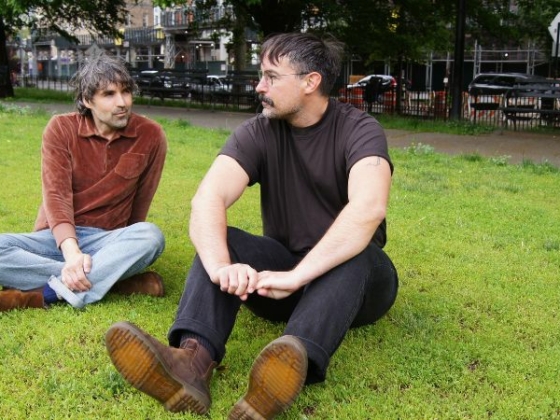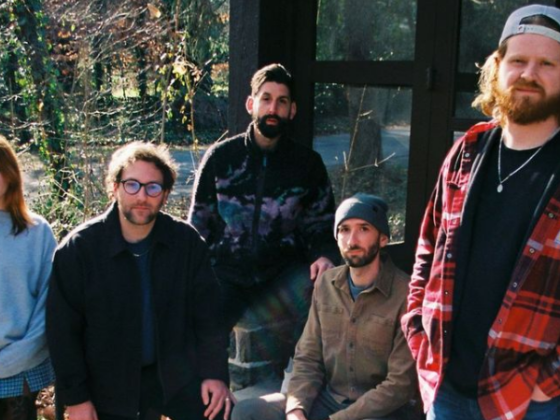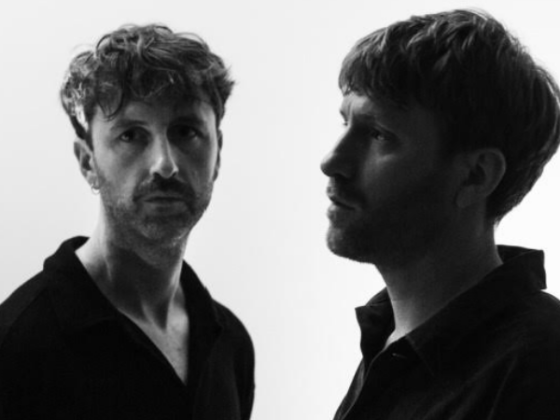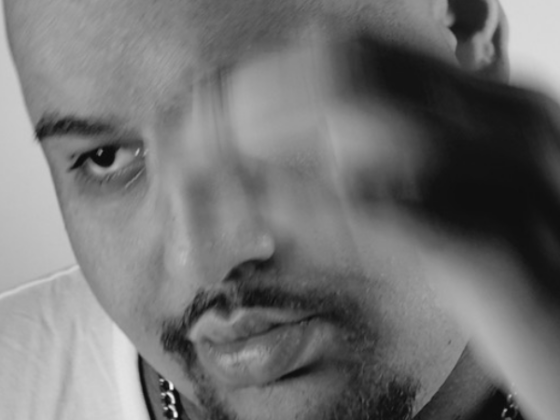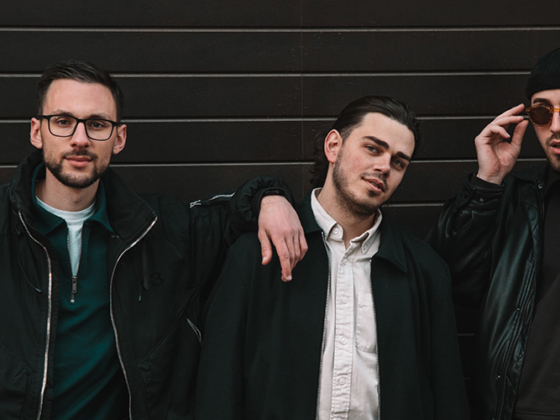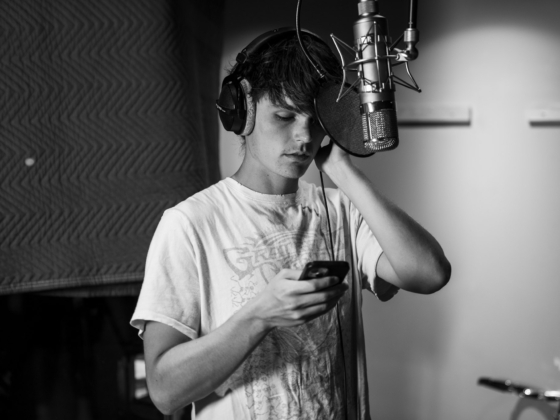27-year-old Tampa, Florida-based R&B/Soul singer Gabriel Jacoby arrived on the scene in 2022 with singles like “as you stand next to me,” “Reptile,” and “make it sweet,” and has since garnered a reputation that precedes itself with comparisons to musical legends ranging from Andre 3000 to the late Prince.
Jacoby employs a lush, sultry, and vibrant sonic palette that successfully combines elements of soul, funk, R&B, folk, blues, southern hip-hop, and jazz to create something entirely new; something that feels like an apt reflection of the artist's personal world.
In preparation for the release of his debut EP, gutta child, Jacoby released three singles that thoroughly cement listeners in the world of the Tampa native, exemplifying a sonic mastery and versatility that almost feels like it shouldn’t work together: the glossy and funk-inspired “the one,” the sensual and provocative “baby” and the reflective, stripped back “be careful.”
After release, he also dropped a visual for "bootleg" on YouTube.
EARMILK was fortunate enough to have been able to sit down for a conversation with Jacoby to discuss life, influences, the project, touring, and the future, just two days before he was set to depart for said tour with R&B artist Khamari.
Gabriel Jacoby was raised in the ghettos of both South Carolina and Tampa. The eldest of seven and son of a single mother, Jacoby felt an obligation to be something of a defender from a young age.
“I come from a harsh background, I come from poverty. I come from being hungry, I come from that kind of stuff… [and] I’ve always had to be a protector…” he explained. “I feel like that’s all I’ve [been]… but I [wanted] to be more than that.”
This, in tandem with a vocal desire to be a voice for the voiceless, adds meaningful context to Jacoby’s early musical endeavors, like learning piano, bass, and drums.
“[I’ve always wanted] to be someone who people can say–no matter if they’re going through something or not–they know I’m there to offer that sustenance.” This sustenance manifests itself not only in very personal and introspective lyrics, but in the music itself; timeless instrumentation that borrows from a wide range of both classic and contemporary sounds, but manages to be so much more than the sum of its parts; a palette that took Jacoby years to fully develop.
“[In] 2019, I was like, ‘I’m gonna learn guitar as best as I can’ and just start making songs that are real stripped down to just show…[that] I could write something meaningful and use nothing but a guitar.” Jacoby explained that he knew the sound he wanted from the beginning, but opted to introduce it gradually so as not to overwhelm listeners.
“It’s heavy. Funk and soul, and blues are not always understandable,” he elaborated.
When asked about his musical influences, some of the first artists Jacoby mentioned were Nina Simone and Lil Wayne. This sonic juxtaposition is actually a perfect representation of Jacoby’s distinct yet somehow familiar musical style, one that can’t be easily boxed into any specific lane or category.
“I’ve always liked them as artists, but I tried my best to not be too influenced by their sound. Maybe subconsciously I [was] influenced, but I was more inspired by their messages, you know?”
This affinity for themes and messaging is one of the core elements that make a Gabriel Jacoby song a Gabriel Jacoby song. His seemingly innate ability to weave thoughtful introspection together with larger, more universal themes and ideas is just as important as the aforementioned musical palette; truly, one cannot work without the other. “Nina Simone [once] said ‘it’s an artist’s responsibility to reflect the times,’ and that always stuck with me… to the point where… I [feel like I] have to be able to be trustworthy if I’m going to be a leader in anything…Art pertains to real life, in my opinion.”
Jacoby goes on to discuss the impact that Lil Wayne’s “Tie My Hands” from Tha Carter III had on him, explaining that the vulnerability and depth of that song made him cry and showed him that “no one is ever too good to be… sensitive or empathetic”
Lessons like these seemed to be foundational not just for Jacoby’s career and musical maturation, but for his own personal maturation as well.
When discussing a recurring boxing glove motif that appears throughout his visuals, Jacoby explained that he’d always been a fighter, both physically and mentally; so much so that he didn’t know how not to be one. “…being the eldest of seven and being, you know,… raised by a single mother… in the ghetto… to me, [it] was just like, when is it right to take the gloves off?”
Thought patterns such as these make sense when considering not just Jacoby’s background, but the fact that he also did a stint in jail.
When asked about how it felt to be on the other side of such struggle and on the verge of substantial success, Jacoby had the following to say: “It is strange.
I’ve always been a dreamer… so when I was locked up, I never thought I wouldn’t be in this position in life, but I also… didn’t have control over anything else but myself at that point. I couldn’t do anything but change myself, control myself.” He went on to express gratitude for those experiences, hoping to use them as something of a cautionary tale for those who might be in similar situations. “No matter what you’re going through, don’t…put yourself in a predicament where you might get locked up or anything like that, cause life’s precious, you know?”
This growth is the central theme of gutta child. It’s a portrait of a young man’s journey from adolescence to adulthood, an intimate look at the peaks and valleys that come with growing up, and the lessons that one retains on the other side of it all.
“From the beginning to the end…[it’s] an immature perspective, and then each song is me kind of growing in a way…[By] the end, I’m, like, pleading to a higher force. I want people to hear…[it] and be like, you know, none of us are perfect, like, no one. That’s the point of being human. But you have this opportunity to be vulnerable… and honest with yourself. That way you can grow. That’s the only way to grow. So, go through pain, face it, and make that change within yourself. That way, you can make change in the world.”
Listen to gutta child by Gabriel Jacoby on all DSPs

